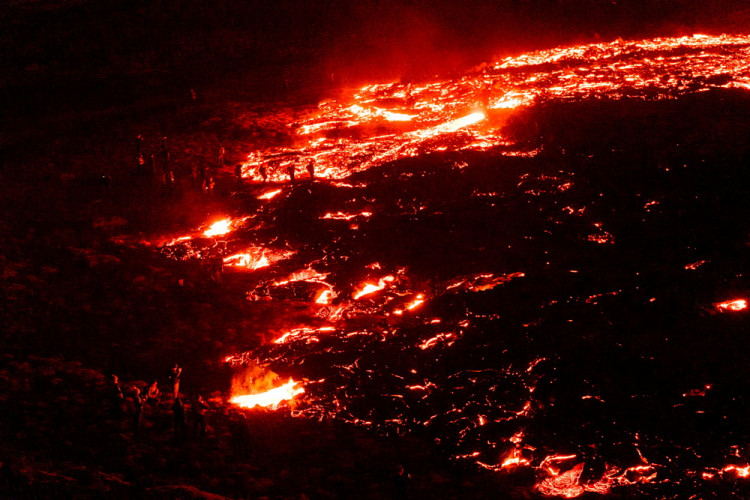Iceland is bracing for a potential volcanic eruption following an escalation in seismic activity on the Reykjanes Peninsula. The Icelandic Meteorological Office (IMO) warns that an eruption could occur within days, prompting the declaration of a state of emergency and the evacuation of Grindavík, a town of 4,000 residents located just three kilometers from the epicenter of the seismic swarm.
"The earthquakes may become more significant, and this series of events could lead to an eruption," cautioned the IMO. In response, the national police force has activated civil defense protocols. As a precaution, the Thor patrol boat has been dispatched to Grindavík for safety.
The Blue Lagoon, a renowned geothermal spa near Grindavík, has been closed due to the heightened risk. The region has experienced a 'dense swarm' of nearly 800 earthquakes between midnight and 14:00 GMT on a single day, with a total of over 24,000 tremors recorded since late October. The IMO's findings reveal an accumulation of magma at a depth of five kilometers, raising the possibility of an eruption.
Thor Thordason, a volcanology professor at the University of Iceland, expressed concern, stating, "That's why we're talking about an imminent eruption, unfortunately. The most likely eruption site appears to be within the boundary of the town of Grindavík."
Iceland's Civil Protection Agency has emphasized the preventive nature of the evacuation, urging residents to remain calm. "There is no immediate danger imminent; the evacuation is primarily preventive with the safety of all Grindavík residents as the principal aim," the agency stated. All roads into the town are now closed, except for emergencies.
The Reykjanes Peninsula had remained dormant for 800 years before experiencing an eruption in 2021. The recent seismic activity, particularly around the Fagradalsfjall volcano, has reignited concerns. A tunnel of magma extending across Grindavík has been detected at a depth of less than 800 meters, indicating a heightened risk.
Iceland, known for having the highest number of active volcanic systems in Europe, is no stranger to volcanic activity. Its last eruption in 2010, Eyjafjallajökull, disrupted European air travel significantly. The current situation underscores the volatile nature of Iceland's geology and the ongoing need for vigilance and preparedness.
The ongoing developments are being closely monitored by both local and international experts. As the situation evolves, further measures may be taken to ensure the safety and well-being of the residents of Grindavík and the surrounding areas.




